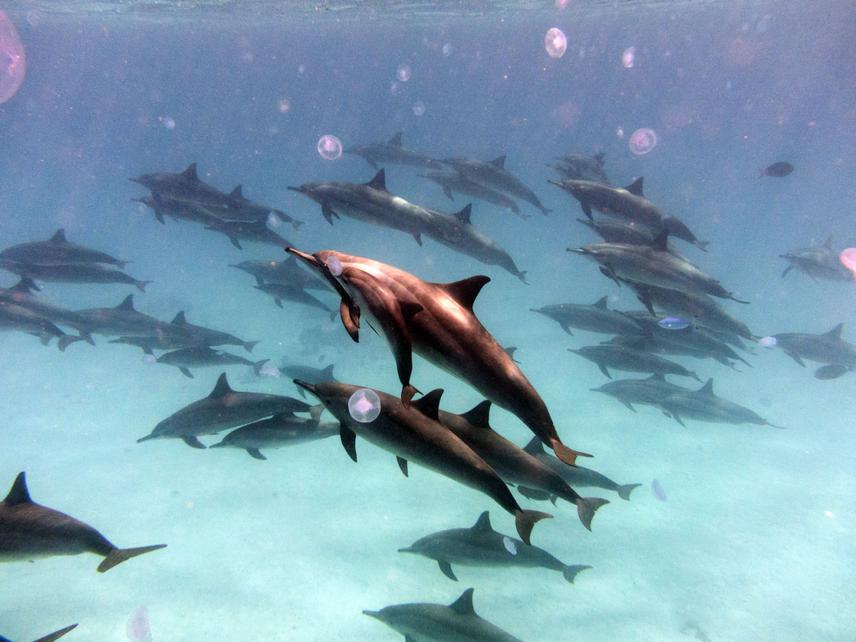Maddalena Fumagalli
Other projects
29 Nov 2011
Samadai Experience: The Balance between Marine Wildlife Conservation and Dolphin Watching Industry Has Been Found?
We investigate spinner dolphins responses to tourism pressures to promote best practices and comprehensive science-informed tourism management schemes.

In the last 10-15 years, the Egyptian Red Sea has grown as a mass tourism destination. Unfortunately, the consumerist approach applied to most marine-based operations has already led to deterioration of natural ecosystems and biodiversity loss. Spinner dolphins have become a valuable resource to tourist operators in the region and the “swim-with” market is flourishing, mainly in two resting areas for the species. Dolphin-based tourism in Samadai has been managed since 2004, while in Satayah reef is still unregulated and often done in inadvisable fashions. The sanctuary (Samadai) and the freely accessible site (Satayah), opposite realities in terms of visit management, hold the same ecological role. Studies reveal that tourism pressures are likely to negatively affect local dolphin populations, thus concerns emerged. Invasive approaches witnessed in Satayah suggest that users are still poorly aware of the threats tourism poses to the species and that compliance to regulations recorded in Samadai is probably result of constant enforcement. In the Egyptian Red Sea patrolling cannot possibly cover the entire territory, therefore we aim at promoting education as a way to achieve actual conservation.
We believe that robust and local information, when properly communicated, shared and translated into actions, can enhance awareness, stewardship and ownership to result in voluntary adoption of codes of conduct and genuine conservation attitudes that can trespass the borders of a patrolled area. We aim to gather advanced scientific information, empower local researchers, organize educational activities with local children and promote active attitudes in visitors and users. We carry out surveys in the two sites to investigate dolphin’s behavioural responses to pressures. We involve local students and professionals that acquire familiarity with marine mammal research techniques and are enabled to carry out monitoring and data collection in the region.
Also, since we reckon that interpretation and education are fundamental component of successful management and quality tourism, we launch targeted science-based programmes to convey original ecological information to guides, stakeholders, local community, and visitors. We plan dedicated trainings and workshops, regular consultations, youth engagement and distribution of awareness material. The project is the continuation of research and conservation efforts started eight years ago and is carried out in collaboration with local NGOs, relevant agencies and the international universities where the principal investigators are currently pursuing PhD degrees.